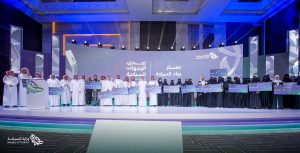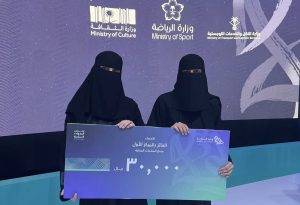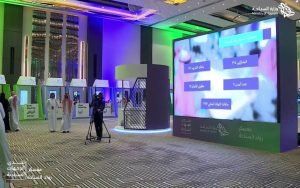Client: Ministry of Tourism
Industry: Toursim
Challenge
Addressing the challenges faced by key tourist destinations in Saudi Arabia—Riyadh, Taif, and Al-Ahsa—by engaging the entrepreneurial community to develop innovative solutions that transform these locations into attractions for tourists and investors.
Outcome
A three-phase training camp brought together a diverse group of individuals with varying backgrounds, expertise, and ideas. Participants were given the opportunity to develop their concepts into actionable projects ready for real-world implementation. Tools and activities were designed to expand their knowledge base and inspire innovative approaches to make an impact in the tourism sector.
Impact
The program resulted in nine innovative and executable tourism projects developed by the winners who successfully reached the third phase out of 600 participants. These winners now have the potential to contribute to the tourism sector with their creative ideas, offering long-term value and cutting-edge services for the industry’s future projects.

The “Tourism Destinations Challenge” program was launched in 2022 under the patronage of the Ministry of Tourism in collaboration with TAM Company. This three-phase training camp was designed to deliver entrepreneurial and innovative solutions to tackle major challenges faced by the target destinations—Riyadh, Taif, and Al-Ahsa. The goal was to foster a community connecting investors, innovators, service providers, and entrepreneurs in the tourism sector, thereby supporting the growth and development of these destinations, attracting more investments, and aligning with Saudi Arabia’s Vision 2030.
With 600 innovative ideas across nine tracks and over 15 sub-challenges, the training camps spanned nearly three months, offering more than 70 hours of training. The program collaborated with over 30 tourism sector experts to enrich the participants’ experience, making it both valuable and enjoyable.

The program followed a methodology named “Destination Methodology”, dividing its phases into themed stages symbolizing the participants’ journey toward achieving their goals. This approach fostered collaboration and innovation:
- Phase 1 (Exploration): The Map Stage
Participants enhanced their skills in research, analysis, opportunity discovery, and problem-solving, adopting innovation and entrepreneurial concepts. - Phase 2 (Design): The Compass Stage
This phase focused on creative thinking and solution generation, aiming to develop practical solutions for the identified challenges. Participants built prototypes in preparation for testing. - Phase 3 (Building): The Treasure Stage
The final phase centered on testing the prototypes, ensuring their quality, and preparing to launch the selected entrepreneurial projects into the market.

The program concluded with a closing ceremony where financial grants were awarded to the nine winning projects that achieved the highest evaluations throughout the three phases.